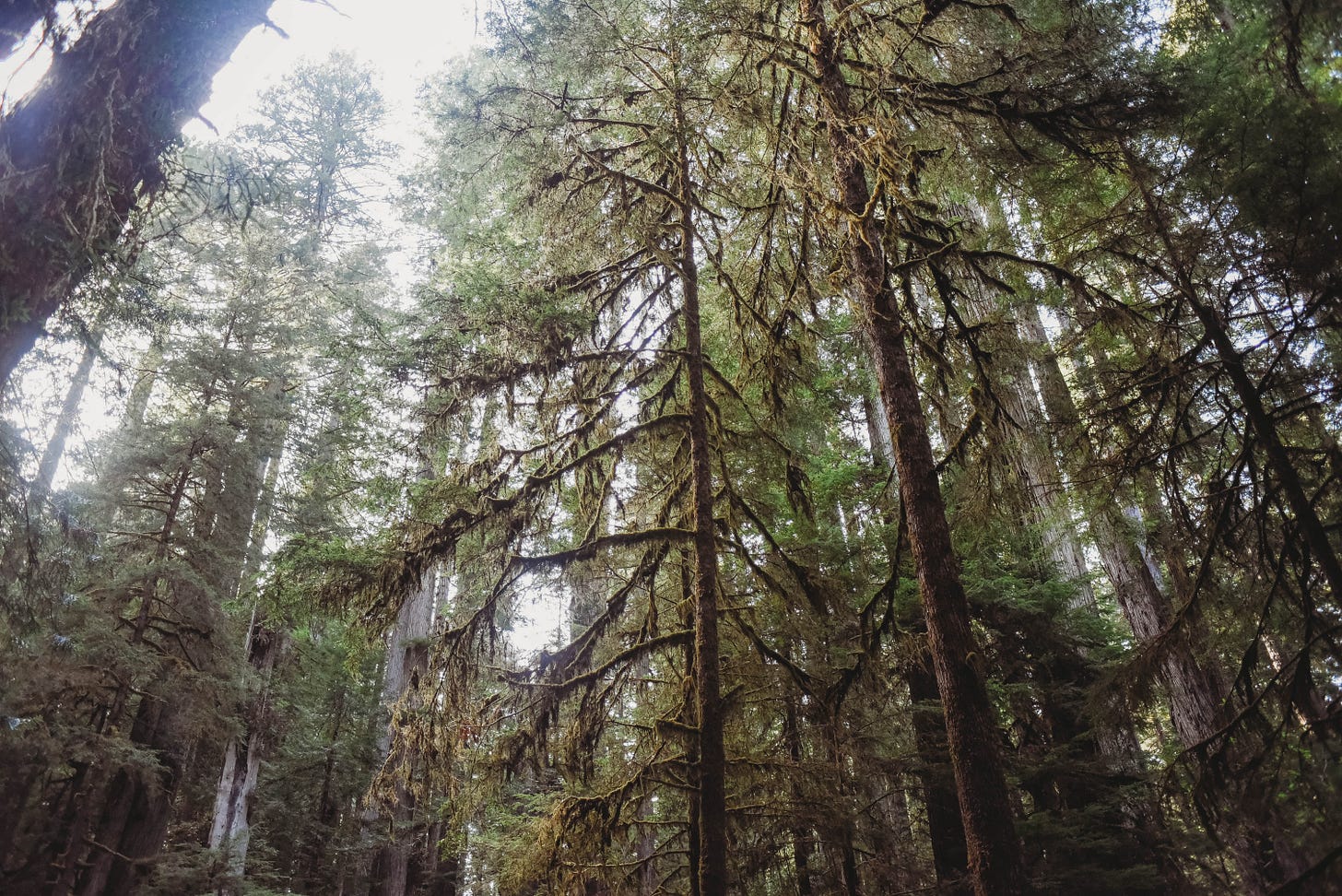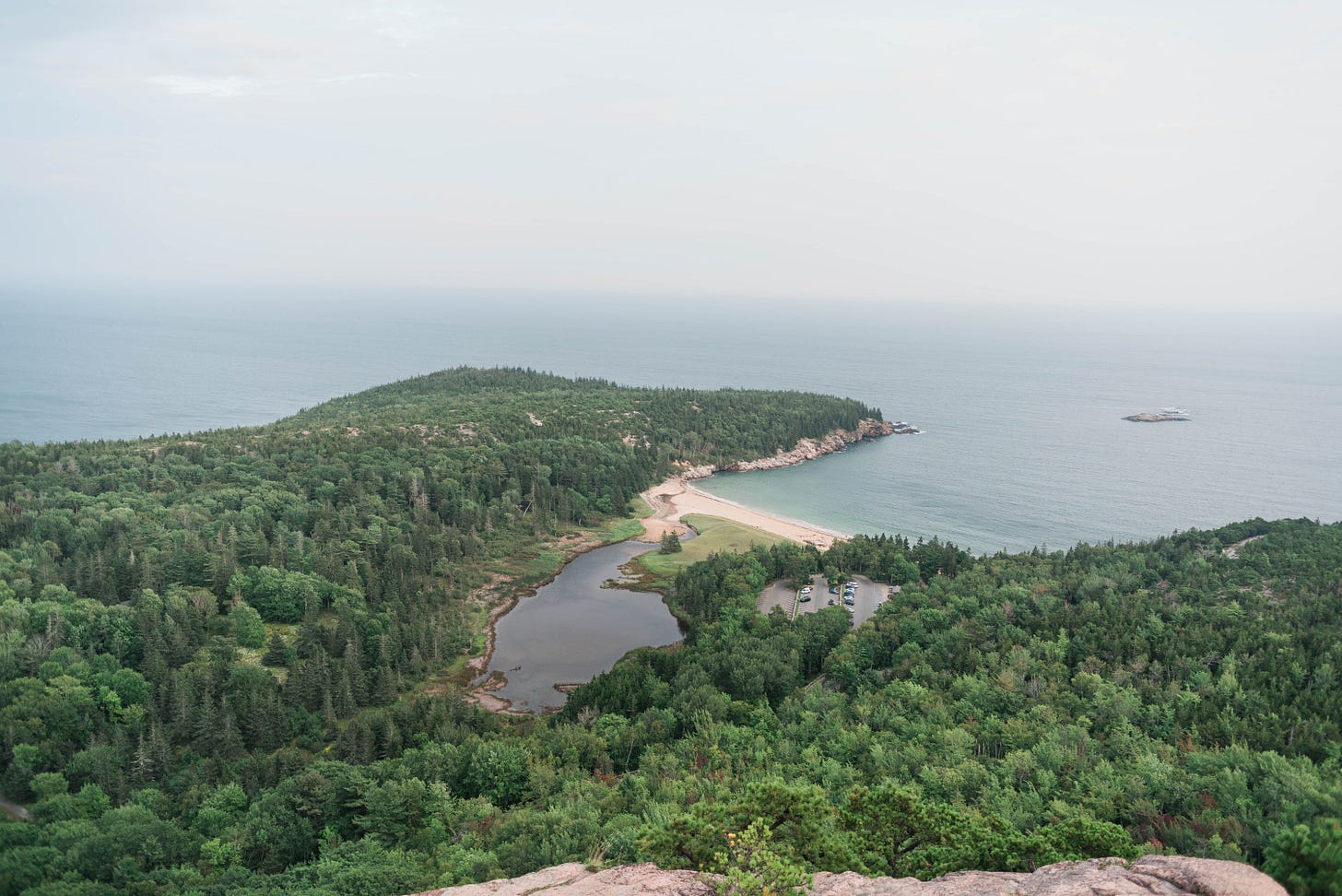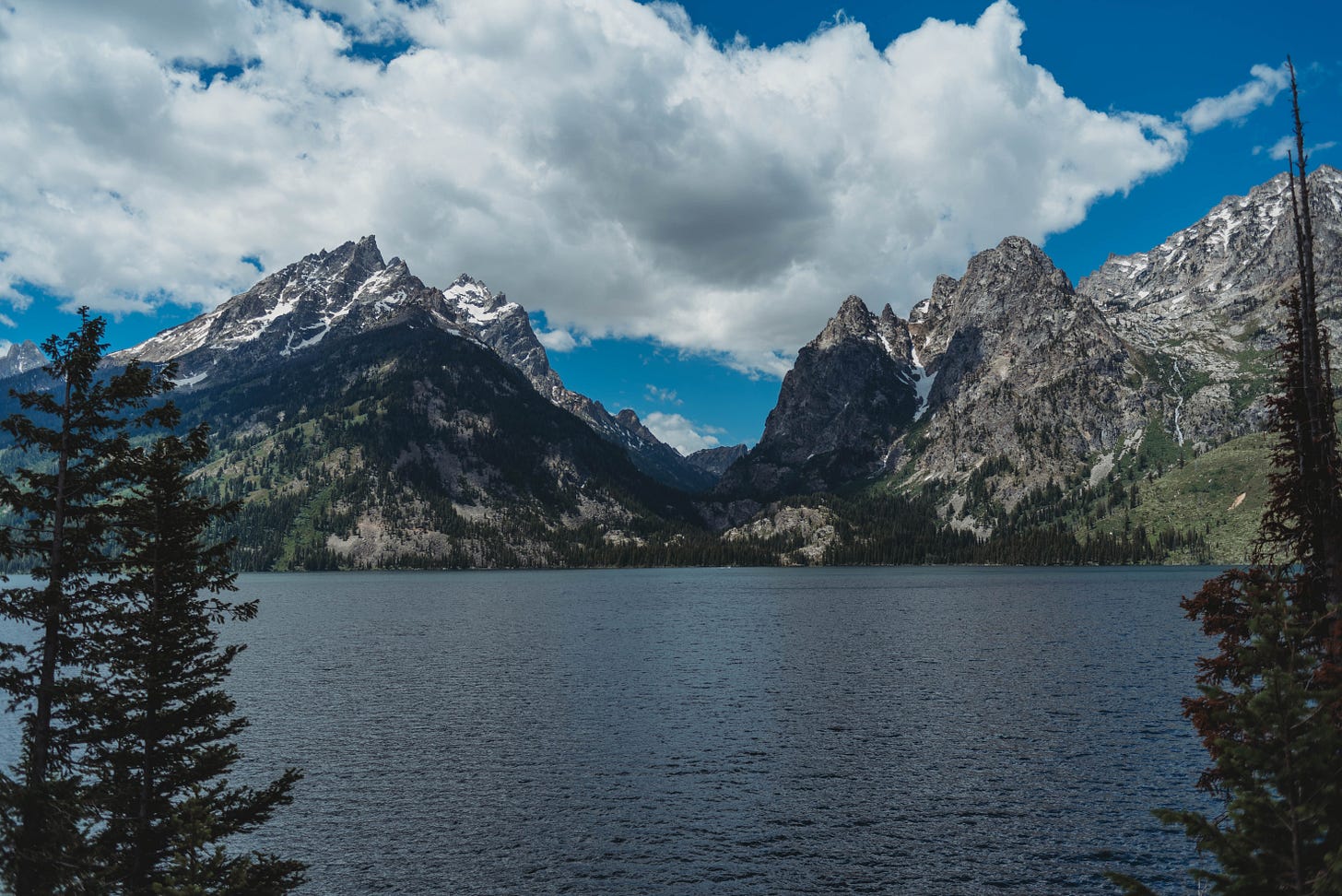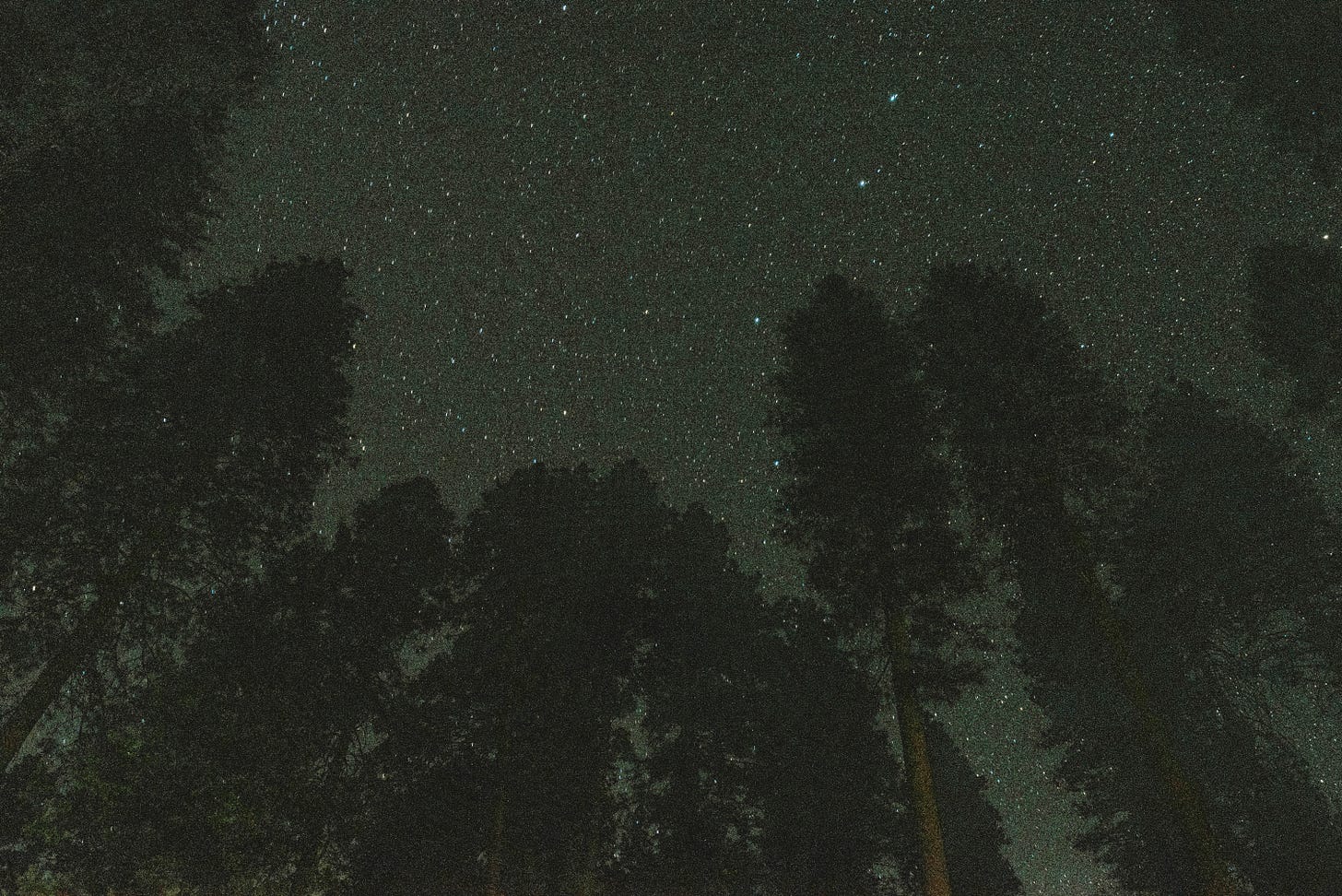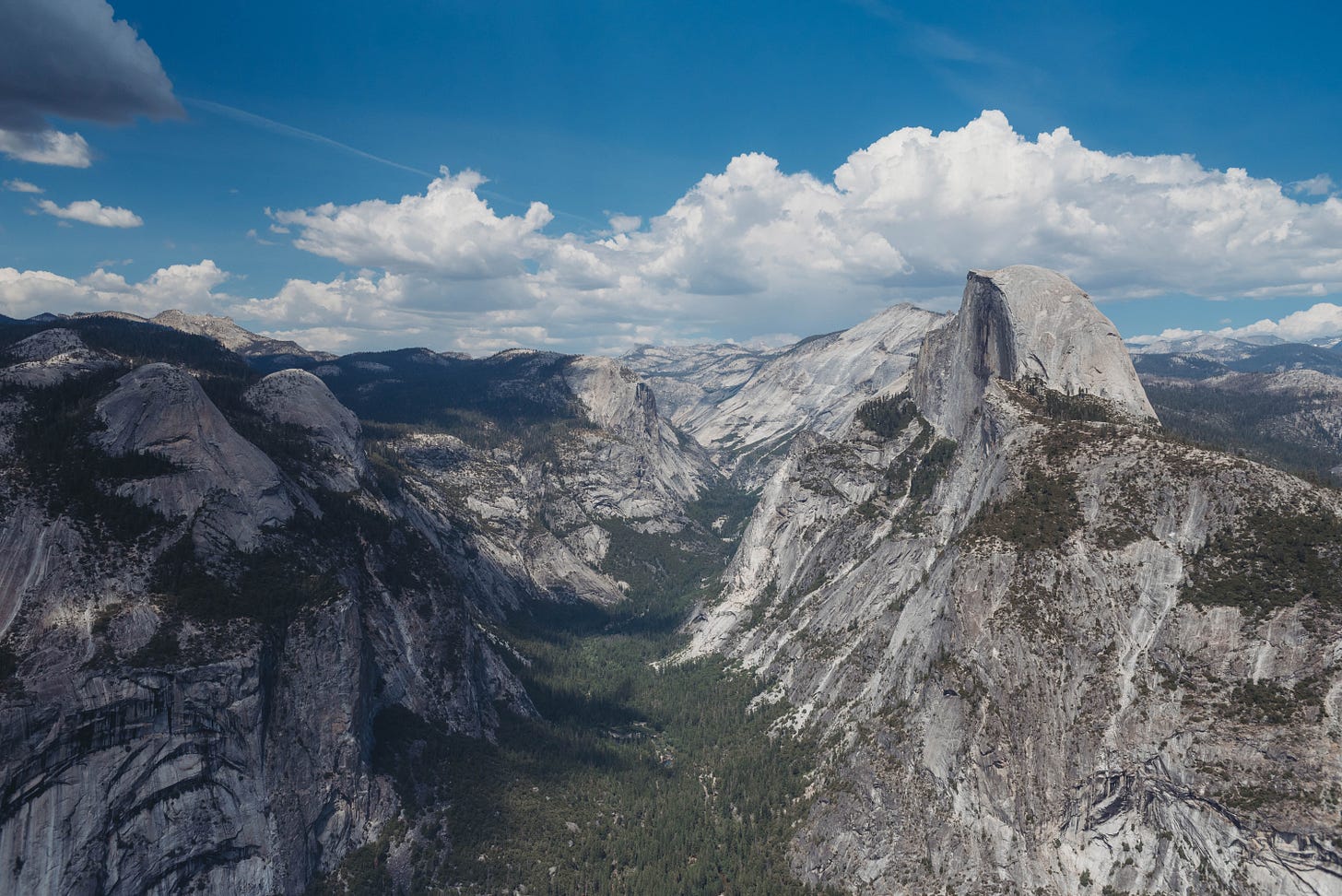Hey friends,
The author Jetsunma Tenzin Palmo said, “We're not trying to acquire something. What we're trying to do is recognize what we already have.” How true, how elegant. There are few better reminders of that principle than the natural world, where every element exists in balance, each part contributing to the beauty of the whole.
In nature, there's no striving for more or grasping for what's lacking; instead, there's a profound acceptance of the present moment and an appreciation for the abundance that surrounds us. The trees don't yearn to be taller, nor do the rivers rush to reach the sea. They simply are, embodying a deep sense of contentment and completeness.
In nature, we’re reminded to let go of our desires and expectations, and to be present with what’s here. It's a lesson in recognizing the inherent richness of our own lives, and the potential for contentment that lies within us. Our lives are so rich, if only we knew.
Earth Day (April 22) is a date on the calendar, just as spring's bloom takes shape, to pause and appreciate the beauty and diversity of nature.
I’ve loved being outdoors as long as I can remember, since camping trips with my dad and long afternoons playing baseball. But my appreciation for our natural spaces deepened during the pandemic, when Ally and I traveled to national parks: mountains, dense forests, deserts, pristine coastlines, from Acadia to Yosemite to Olympic and Glacier. Spending the night sleeping in our van at those parks is far more appealing than staying at a fancy hotel. Nature is my Ritz-Carlton, a place to connect with the planet that has enabled my existence in the first place.
During that roadtrip in 2021, I came to love the feeling of fresh air and oxygen from plants and trees. I came to love exposure to sunlight and its benefits for vitamin D production. I also have long appreciated how nature has helped break foul moods, improve mental clarity, and enhance my mindfulness practices. Why? Perhaps because it helps us pay attention, take stock of what’s in front of us, and remind ourselves of our blessings.
It’s easier to be more in the now when you go to the park, surrounded by trees or hills or mountains. Nature becomes a sanctuary and a reminder of the resilience and beauty that surrounds us. That goes for every leaf, every rock, every creature.
The natural world — the actual world — also allows us to feel connected to something greater than ourselves. On average, Americans spend ~90% of their life indoors. But outside, we gain a broader perspective, away from the screens that dominate our lives.
I do as much as I can outdoors: meals and coffee breaks, working on my laptop, writing and reading books, reading the mail, making calls, lifting weights, doing yoga, journaling, and even just sitting there, doing nothing. The benefits have been profound for my clarity of mind. Being in nature heightens your sense of being — that might be its greatest gift.
Lorraine Hansberry: "Hills, the trees, sunrise and sunset — the lake the moon and the stars / summer clouds — the poets have been right in these centuries darling, even in its astounding imperfection this earth of ours is magnificent."
John Muir: “And into the woods I go, to lose my mind and find my soul.”
Frank Lloyd Wright: "Study nature, love nature, stay close to nature. It will never fail you."
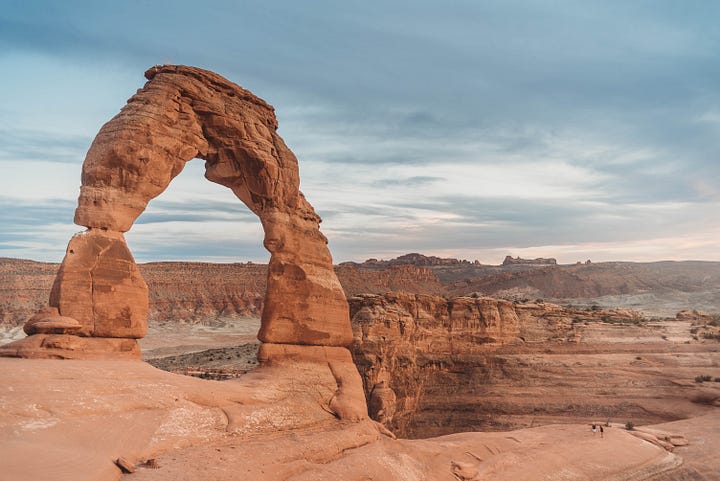
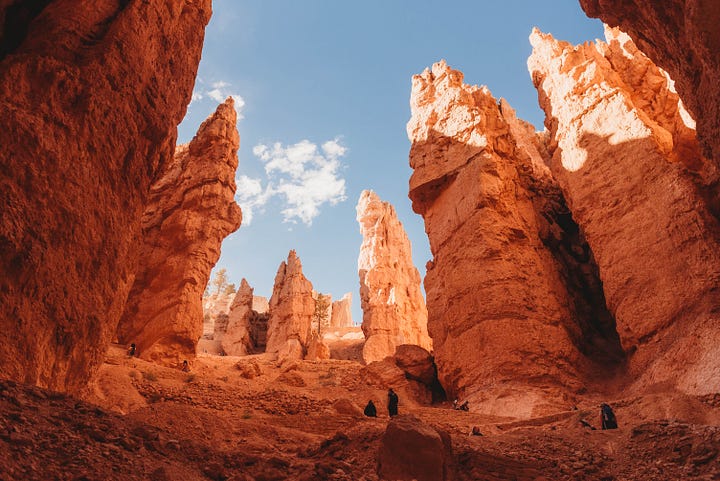
What gives me chills? For thousands of years, nature has provided humans relief, comfort, and inspiration…for artists, everyday working people, and visionaries. We share the same world as them. We also share the same soil and sky that our ancestors enjoyed. There’s a beauty in that, and there's beauty in that we don't really own any of this place — we're simply renting a brief glimpse of this magical place before our time is up.
Every sunset, every rustling leaf, every drop of rain carries with it the echoes of countless generations before us. The beauty lies in our shared stewardship, our shared responsibility to preserve and protect this world for our great, great-children we’ll never meet.
There’s a reason doctors are prescribing nature walks to relieve stress, and there’s good reason many innovators credit breakthroughs to walks outside in nature. In Japan, there's a practice called "Shinrin-Yoku" or "forest bathing," which involves immersing oneself in a forest environment to improve mental and physical well-being. Studies have shown that spending time in nature can reduce stress hormones, lower blood pressure, and boost the immune system.
Go out, go out I beg of you
And taste the beauty of the wild.
Behold the miracle of the earth
With all the wonder of a child.
— Edna Jaques
Sometimes, I notice a fear bubbling up within me: That I won’t have enough time on this planet to enjoy and appreciate as much of it that I’d like. As my 20’s whizz by, it’s not a lovely feeling. Yet nature tells me not to fret, because there’s another breeze to enjoy right now. There’s a park bench nearby, waiting for me, right now. There’s another sunset to go see after dinner. There are stars to admire before falling asleep tonight.
Steve Jobs: “Whatever it may be, I bet many of you have had some of these intuitive feelings about what you could do with your lives. These feelings are very real, and if nurtured can blossom into something wonderful and magical. A good way to remember these kinds of intuitive feelings is to walk alone near sunset—and spend a lot of time looking at the sky in general.”
While stargazing, I find a slightly easier time slowing down to appreciate the miracle of this tiny blue planet, spinning in a vast space of mostly nothingness. Stargazing expands the mind and zooms us out of the day-to-day minutiae. Often, it leaves me and Ally without much to say. That’s what awe can do for us, I suppose.
Stargazing reminds us of our place in the universe and the interconnectedness of all things. The stars and distant galaxies serve as a humbling reminder of the beauty and complexity that exists well beyond us. In quiet moments, we’re reminded to cherish our time here and to marvel at the wonders around us.
Stargazing isn’t just an act of observing the stars; it's a journey inward and outward, connecting us to all of our ancestors who enabled our existence. Stargazing also inspires a sense of wonder and curiosity that fuels our exploration of the universe and ourselves.
“The sight of the stars makes me dream.” — van Gogh
“Dwell on the beauty of life. Watch the stars, and see yourself running with them.” ― Marcus Aurelius, Meditations
Often, we remember the simple pleasures most fondly. They remind us to slow down and appreciate the present moment in a world that can seem fast-paced, one that can be more concerned with how much we produce in the marketplace rather than the size of our heart or the depth of our love. But being in nature becomes a grounding and rejuvenating experience, helping us to reconnect with ourselves and what truly matters.
Nature also reminds us that the little things are really the big things — like walking in the park during a break from work, admiring a sunset with a loved one, and stargazing by the fire on a summer night.
How about you? What is your relationship with nature, and how do you witness all of its beauty?
Celebrate your gifts,
Matthew
Parting thought: “All that I hope to say in books, all that I ever hope to say, is that I love the world.” — E.B. White



